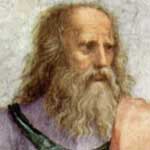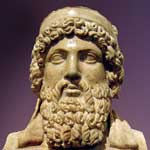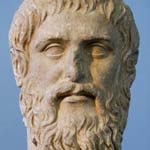Philosophy
What is life really about? The greatest human minds have pondered, debated and written their answers to this question. In this section you will find articles discussing fascinating ideas from notable philosophers.

- Details
- Mike Harding
- Philosophy
In Part One of this two-part article, Mike Harding explores the intersection of philosophy and astrology, citing the works of philosophers Heidegger, Wittgenstein, Safranski and more.

- Details
- Mike Harding
- Philosophy
In Part Two of this two-part article, Mike Harding explores the ideas of Wittgenstein regarding language, and how this relates to the language of astrology.

- Details
- Tim Addey
- Philosophy
It is said that when he was near death, Plato had a dream in which he saw himself changed into a swan that flew from tree to tree making it difficult to catch him. Of all the philosophers, Plato is perhaps the most difficult to feel that one has him and his meaning properly netted and secure.

- Details
- Tim Addey
- Philosophy
The orthodox view of Plato's philosophy is that the whole scheme rests on a reasonably clear distinction between two kinds of reality – the intelligible and the sensible. This is an adequate starting point ...But let us start with the twofold reality.

- Details
- Tim Addey
- Philosophy
What is the soul according to Plato and his tradition? Going back to the simplest terms: psyche in Greek means breath – our earthly life is traditionally measured from the first breath to our last. So for the Greeks, psyche is the life giver which makes otherwise inanimate matter live.

- Details
- Tim Addey
- Philosophy
The direction of Plato's ethical system is based on the nature of the human self and its destiny: if we are, as he thinks, immortal and intellectual creatures, unfolding our potential in the world of time, then the pursuit of material wealth and temporal security is of little value.
